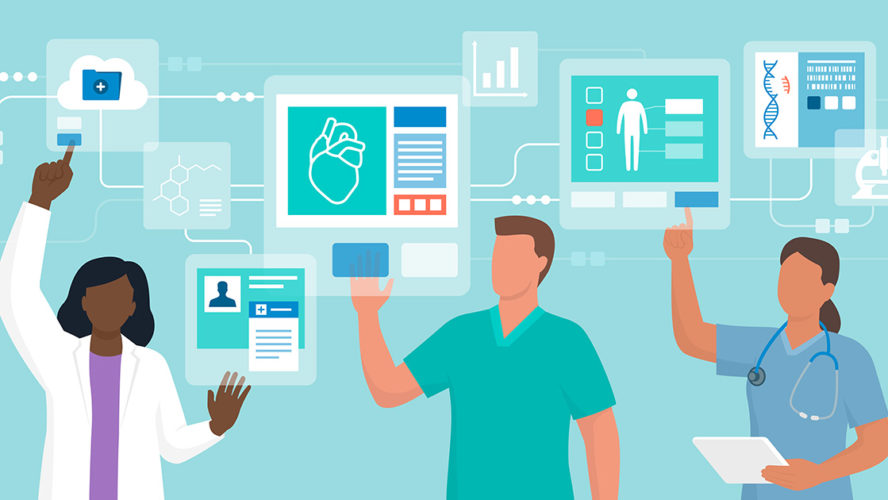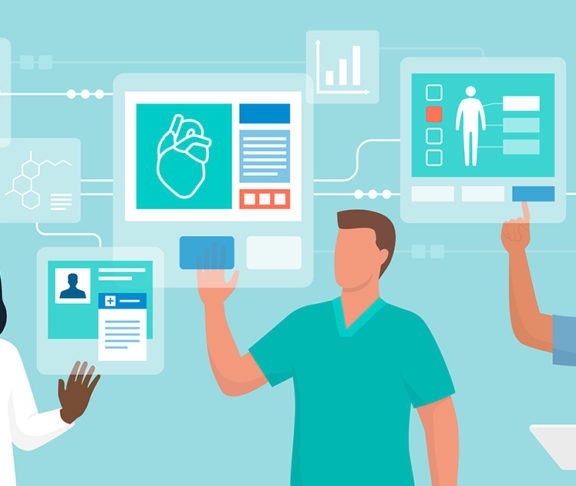
Catherine Davies
Director, Digital Healthcare Council
With the clear need for innovation to tackle health service pressures, the potential of AI is enormous. We must not scale back our ambition.
The NHS is experiencing unprecedented demand. With a staffing crisis and the continuing impact of Covid-19, data reveals significant operational challenges including the elective backlog, cancer waiting times, and demands on A&E.
Ongoing pressures
The government is being urged to increase spending on health; but with public sector net borrowing approaching an all-time high and calls to cut taxes, there is a danger of progress stalling. At the time of writing, reports of plans to cut investment in technology are emerging.
We need innovation to help us tackle operational pressures—investment in digital services and new technology must continue.
Artificial intelligence, for example, can help direct people to the right part of the healthcare system and help us manage population health.
AI can reduce the burden on systems by signposting people to appropriate services and analysing self-reported information for risk.
Signposting and digital triage
AI can reduce the burden on systems by signposting people to appropriate services and analysing self-reported information for risk.
In Sweden, several regions use Visiba Care’s AI tool for triaging people and directing them to appropriate services by analysing self-reported information. With an accuracy rate comparable to a human, this tool has helped reduce unnecessary A&E admissions and helped optimise waiting lists. It is also supporting healthcare staff with clinical decision-making, freeing up resources, and addressing patients’ concerns quickly and safely.
Ada is a symptom checker that uses AI to help UK users seek timely healthcare. This is particularly useful for conditions like cancer where early diagnosis is key. Data analysis indicates that Ada could help patients identify their cancer risk at an earlier stage, helping people make informed health-seeking decisions which can lead to faster referral and better outcomes.
Population health monitoring
Babylon is using AI to create a sophisticated understanding of the risk profile of the populations it serves. Using rich sources of patient information, individuals and cohorts with the greatest health needs are identified to deliver targeted, clinician-led interventions to proactively improve healthcare outcomes—identifying and managing the risk before it materialises.
We must not slow investment in health tech or scale back our ambitions as funding pressures bite. With clear examples of how AI can ease pressures and help patients access the care they need, now is the time to press on with our uptake of digital technologies.

